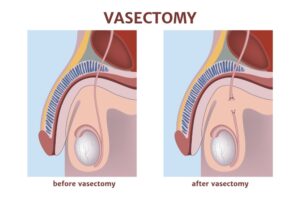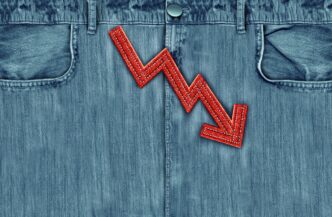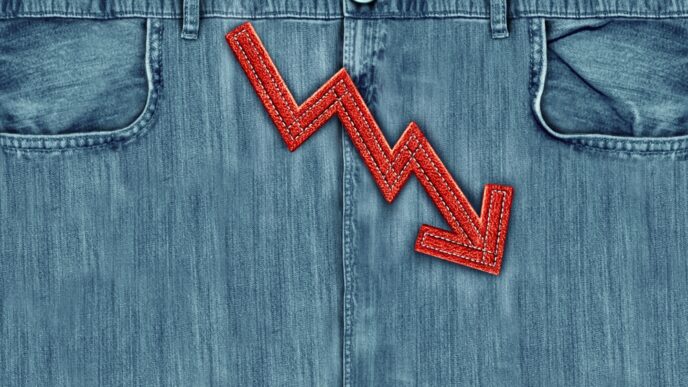Thinking about getting the snip? While a vasectomy is a quick, effective form of birth control, there are a few things men should know before booking the appointment. A consultant urologist presents some facts and advice on this matter.
WORDS LIM TECK CHOON
 FEATURED EXPERT FEATURED EXPERTPROFESSOR DR CHRISTOPHER HO CHEE KONG Consultant Urologist School of Medicine Taylor’s University |
WHAT HAPPENS DURING A VASECTOMY?
To understand the procedure better, Professor Dr Christopher Ho Chee Kong will first give an overview on the sperm production process.
- Sperm cells are made by cells called Sertoli cells in the testicles and are stored in the structure called epididymis.
- A tube called the vas deferens carries these sperm cells from the epididymis towards the urethra.
- Along the way, these sperm cells are mixed with seminal fluids, produced by separate glands called seminal glands, to form ejaculate during sexual intercourse.

What happens during vasectomy is that the vas deferens is cut.
- As a result, sperm cells are unable to leave the testicles.
- Pregnancy is no longer possible after sexual intercourse.
Because vasectomy does not affect the seminal glands, the man can still produce semen.
THERE ARE TWO TYPES OF VASECTOMY
Conventional Vasectomy
- The surgeon using a scalpel to make an incision on the skin of the scrotum to perform the snip.
No-Scalpel Vasectomy
- The surgeon using a specialized surgical instrument, called the sharp haemostat, to puncture a small hole in the scrotum.
- Unlike conventional vasectomy, this method has a smaller risk of bleeding, infection and pain.
- The procedure also takes less time to perform compared to conventional vasectomy.
As tempting as choosing the no-scalpel vasectomy option may be to some men, Professor Dr Christopher Ho points out that the equipment needed for no-scalpel vasectomy may not be available at certain clinics and hospitals.
Also, not every surgeon is capable of performing this type of vasectomy, as it requires a little bit more training and experience.
WHAT HAPPENS AFTER THE SURGERY?
Professor Dr Christopher Ho shares that:
- One will need to rest for about 24 hours after the surgery.
- He can perform light activities after 2 or 3 days.
- Sports, lifting and other heavy activities should be avoided for the first week or so, however.
How About Sex?
- Sexual intercourse can resume after about 1 week.
- However, the man should use contraceptives such as condoms until follow-up medical appointments show that there are indeed no sperm cells in his semen.
How to Know If the Procedure Is Successful
The man will be asked to provide a semen sample for analysis at about 3 months or after 20 ejaculations (whichever is sooner) after the surgery.
|
WILL HAVING A VASECTOMY AFFECT THE MAN’S ABILITY TO HAVE SEX?
- Vasectomy does not affect the nerves in the penis or the blood supply to it.
- This Professor Dr Christopher Ho states that there shouldn’t be any changes in the man’s ability to achieve an erection or attain sexual pleasure.
- There shouldn’t be any changes to the man’s semen either, aside from the absence of sperm cells.
However…
- Improperly done vasectomy may damage blood supply to the testicles.
- This can cause reduced testosterone production. As a result, the man’s sexual performance may be affected.
- Fortunately, such occurrence is very rare.
ANYTHING ELSE A MAN SHOULD KNOW?
“There is a failure rate of 0.3% to 9%, usually due to the surgeon’s technique or skill level,” says Professor Dr Christopher Ho.
Also, sometimes the cut vas deferens may rejoin on their own, but this happens rarely.
CHANGE A MAN CHANGE HIS MIND AFTER THE SURGERY AND HAVE THE VASECTOMY UNDONE?
It’s possible.
Still, Professor Dr Christopher Ho cautions that reversing a vasectomy is a complicated and expensive procedure with a chance of failure.
Furthermore, the vasectomy process itself may affect the man’s fertility even after a reversal has been carried out.
Therefore, a man should be absolutely certain that he doesn’t want children before going for the snip!
There are two ways a vasectomy can be reversed, either by:
- Reconnecting both ends of the cut vas deferens (vaso-vasotomy), or
- Reconnecting the cut vas deferens to the epididymis (vaso-epididymostomy)
The choice of procedure is determined after an initial assessment of a fluid sample, called vas fluid, obtained from the man’s vas deferens.
- If healthy sperm cells are seen in the sample, then vaso-vasotomy will be carried out.
- If no sperm cells are seen, or if the vas fluids aren’t of sufficient quality to be analyzed, then vaso-epididymostomy will be recommended instead.
Some Potential Issues to Take Note of
Epididymal blowout
- After a vasectomy, the sperm cells in the epididymis have nowhere to go.
- As a result, there is mounting pressure in the epididymis, to the point that rupture of the epididymal structure may result.
- This affects sperm production and the quality of the sperm produced after the vasectomy is successfully reversed.
Anti-sperm antibodies
The body may produce antibodies that can either outright kill sperm cells or severely reduce the ability of the sperm cells to travel in the womb and seek out an egg cell to fertilize.
Rate of successful pregnancy after reversing a vasectomy
- “The rate of a successful pregnancy after a reversal vasectomy is about 55% if the reversal is done less than 10 years after the initial vasectomy,” says Professor Dr Christopher Ho.
- “This rate drops to 25% if the reversal is performed more than 20 years after the vasectomy,” he adds.
Even if the vasectomy reversal is successful, it may take up to a year before viable amounts of sperm cells are produced in some men.
Still, Professor Dr Christopher Ho advises men who wish to have their vasectomies reversed to talk to a urologist.
With advances in research and medical methodologies, there are many men who successfully become fathers despite having had vasectomies in their past.
These days, there is always a possibility that the door to fatherhood is still open, so it is up to the man to make the first step and explore the options available to him.
| This article is part of our series on tips and advice on men’s health, sex life, and fertility. |











